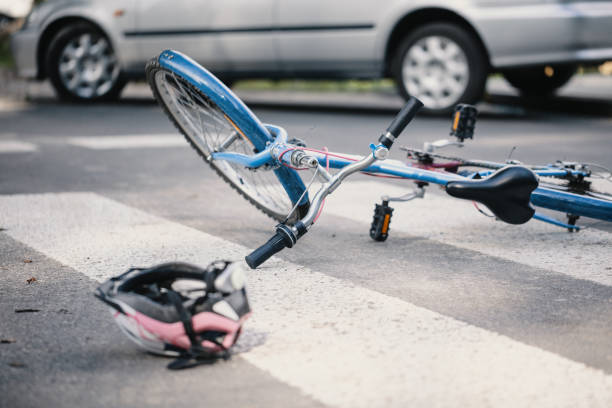Immediate Response After A Bicycle Accident: Essential Steps for Protecting Your Rights

Bicycling, whether for leisure, exercise, or commuting, presents numerous benefits, from promoting physical health to reducing carbon footprints. However, despite the joy and advantages it brings, bicycling comes with risks, particularly when sharing the road with motor vehicles. Accidents can happen, and the aftermath can be overwhelming and confusing. Knowing the immediate steps to take following a bicycle accident is crucial for your physical well-being, legal rights, and potential compensation. This comprehensive guide, presented by Pinkston Law Group, P.C., outlines the essential actions you should take if you find yourself in such an unfortunate situation.
Check for Injuries and Seek Medical Attention
Safety and health should always be your top priority. Immediately after an accident, assess yourself for injuries. Even if you feel fine, it’s important to understand that some injuries, such as internal bleeding or concussions, may not be immediately apparent. Call 911 or ask someone to do it for you if you’re unable to. Wait for medical personnel to arrive and follow their advice. Seeking medical attention promptly not only ensures your well-being but also creates a valuable record of your injuries, which is crucial for any future insurance claims or legal actions.
Move to a Safe Location, If Possible
If you’re not seriously injured and it’s safe to do so, move to the sidewalk or another safe area away from traffic. Leaving your bicycle in the same spot as the accident can serve as evidence, but your safety is more important. If moving your bike is necessary to prevent further accidents or injuries, take photos first to document its position relative to the accident scene.
Contact Law Enforcement
Having a police report is essential, even for seemingly minor accidents. The report provides an official account of the incident, including details about the parties involved, witnesses, and the scene. This document is invaluable for insurance claims and legal considerations. When the police arrive, provide your account of the accident as clearly and accurately as possible, but avoid admitting fault or speculating about what happened.
Document the Scene and Collect Information
Gather as much information as you can while you’re still at the scene. This includes:
- Take photos of your bicycle, the vehicle involved, any visible injuries, and the overall accident scene, including traffic signs and signals.
- Getting the contact and insurance information from the other party involved.
- Collecting names and contact details of any witnesses.
- Note the time, date, and weather conditions as they can also be relevant.
Documentation plays a critical role in establishing the facts of the accident and can significantly impact the outcome of insurance claims and legal proceedings.
Notify Your Insurance Company
Inform your insurance company about the accident as soon as possible. Provide them with all the collected information and cooperate fully, but be cautious about making statements that could inadvertently affect your claim. Remember, insurance companies, even your own, aim to minimize payouts. Consider consulting with a legal professional before giving detailed statements, especially if the accident involves significant injuries or damages.
Seek Legal Advice
Bicycle accidents can result in complex legal situations, especially when determining fault and navigating insurance claims. Engaging a knowledgeable attorney who specializes in bicycle accidents can provide you with the guidance and representation needed to navigate these challenges. An attorney can help:
- Understand your rights and the laws that apply to your case.
- Deal with insurance companies and ensure your claim is fairly represented and compensated.
- Pursue compensation for damages, including medical expenses, lost wages, and pain and suffering.
Avoid Discussing the Accident on Social Media
In today’s digital age, the urge to share experiences on social media is understandable. However, discussing your accident online can undermine your legal case. Insurance companies and legal representatives of the other party might use your posts against you, arguing that your injuries are not as severe as claimed or that you bear more fault than admitted.
Keep a Detailed Record
Start a journal documenting your recovery process, including medical appointments, treatments, and how your injuries impact your daily life. This record can be a powerful tool in demonstrating the extent of your injuries and their impact on your life, which is vital for insurance claims and potential legal action.





